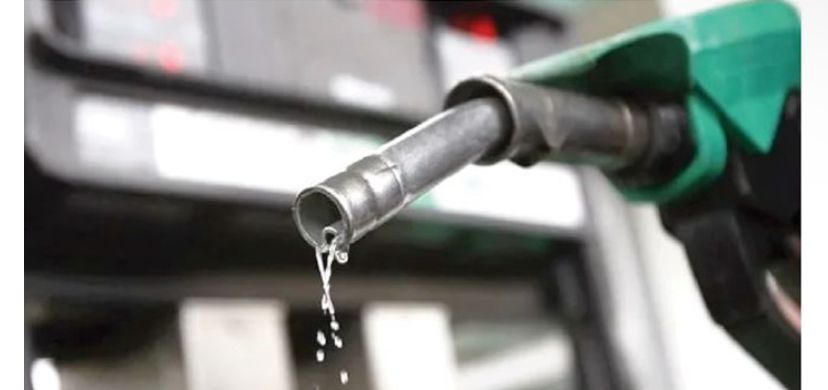In a major move set to offer significant relief to Nigerian consumers, the Dangote Petroleum Refinery has announced a reduction in its ex-depot (gantry) price of Premium Motor Spirit (PMS), commonly known as petrol. Effective from February 27, 2025, the price will drop from ₦890 to ₦825 per litre, marking a significant decrease in petrol prices at the refinery level. This is a strategic move to ease economic burden.
This move is the second price cut within a month, as Dangote Refinery had previously reduced its petrol gantry price by ₦60 per litre on February 1, 2025. The consistent price reduction is being viewed as a strategic effort by the refinery to support Nigerian citizens, who have been grappling with economic challenges in recent months.
The decision to slash the petrol price comes at a time when many Nigerians are struggling with inflation, rising transportation costs, and the general high cost of living. Dangote Refinery, which is located in the Lekki Free Trade Zone in Lagos, is one of the largest single-train refineries in the world, with a capacity to refine 650,000 barrels of crude oil per day. As a result, its actions play a pivotal role in shaping the price of refined petroleum products in Nigeria.
By reducing the price of petrol at the refinery’s gantry, Dangote Refinery is directly influencing the price of fuel across the country. While fuel marketers and distributors are responsible for determining the final pump prices, this price reduction at the refinery level has the potential to create a ripple effect across the entire downstream petroleum sector.
Experts suggest that, if this price cut is reflected at the pumps, consumers may see a reduction in the cost of petrol, which could alleviate some of the financial pressures that have been building in recent months.
This price reduction comes at a particularly timely moment, as Nigeria prepares for the holy month of Ramadan, which is expected to begin in March 2025. Ramadan is a time when many Nigerians experience increased transportation costs due to travel and the movement of goods. As families come together for prayers, special meals, and charitable acts, the price of essential goods—including petrol—becomes even more crucial.
The Dangote Refinery’s decision to lower petrol prices is seen as a direct response to the needs of the Nigerian people during this period of heightened demand. By making fuel more affordable, Dangote Refinery is helping to reduce the overall cost of living for millions of Nigerians, particularly in the transportation sector, where fuel costs often account for a significant portion of household expenditures.
READ MORE: Trump Contemplates Reducing China Tariffs to 80% as Trade Talks Loom
This price reduction is also aligned with the economic recovery agenda of President Bola Ahmed Tinubu’s administration. The government has been focused on reducing inflation, managing the cost of living, and improving economic conditions for the average Nigerian. By taking proactive steps to reduce petrol prices, Dangote Refinery is contributing to the government’s overarching goal of providing economic relief to citizens.
In a statement, the Dangote Refinery said, “Our goal is to support Nigerians by making petrol more affordable. As part of our commitment to the country’s development, we are focused on easing the burden on households and ensuring that essential commodities remain accessible to all.”
The reduction in petrol prices could have far-reaching effects beyond just the transportation sector. With fuel costs being a major driver of inflation, a decrease in petrol prices can lead to lower transportation and logistics costs, which would directly impact the prices of goods and services across Nigeria. This could provide much-needed relief for consumers, who have been facing inflationary pressures in the market.
Furthermore, the reduction in petrol prices could also help stabilize the prices of other essential goods. For instance, food prices, which have been rising steadily, are often influenced by the cost of transportation. Lower fuel prices could lead to a decrease in transportation costs, which would, in turn, reduce the cost of food and other essential goods.
Dangote Refinery has been hailed as a game-changer for Nigeria’s energy sector. The facility, which began partial operations in 2024, is poised to reduce Nigeria’s dependence on imported refined petroleum products, which have been a major burden on the country’s foreign exchange reserves. By refining crude oil locally, Dangote Refinery is helping to ensure a steady supply of refined products, which can help stabilize prices and provide long-term energy security for the country.
The refinery’s impact is expected to be felt across the nation as it ramps up production and begins to meet more of Nigeria’s domestic fuel needs. With its ability to produce millions of barrels of refined products daily, Dangote Refinery is positioning itself as a major player in Nigeria’s energy market, providing much-needed support for the country’s fuel infrastructure.
The reduction in the ex-depot price of petrol by Dangote Refinery is a welcome move that promises to ease the financial burden on Nigerians, especially as the country prepares for Ramadan. This price cut, along with the refinery’s ongoing efforts to enhance Nigeria’s domestic refining capacity, is a significant step toward stabilizing fuel prices and improving economic conditions for everyday Nigerians.
With further potential price reductions on the horizon, the actions taken by Dangote Refinery are expected to have a lasting positive impact on Nigeria’s economy, offering relief to consumers and bolstering the nation’s energy security.




